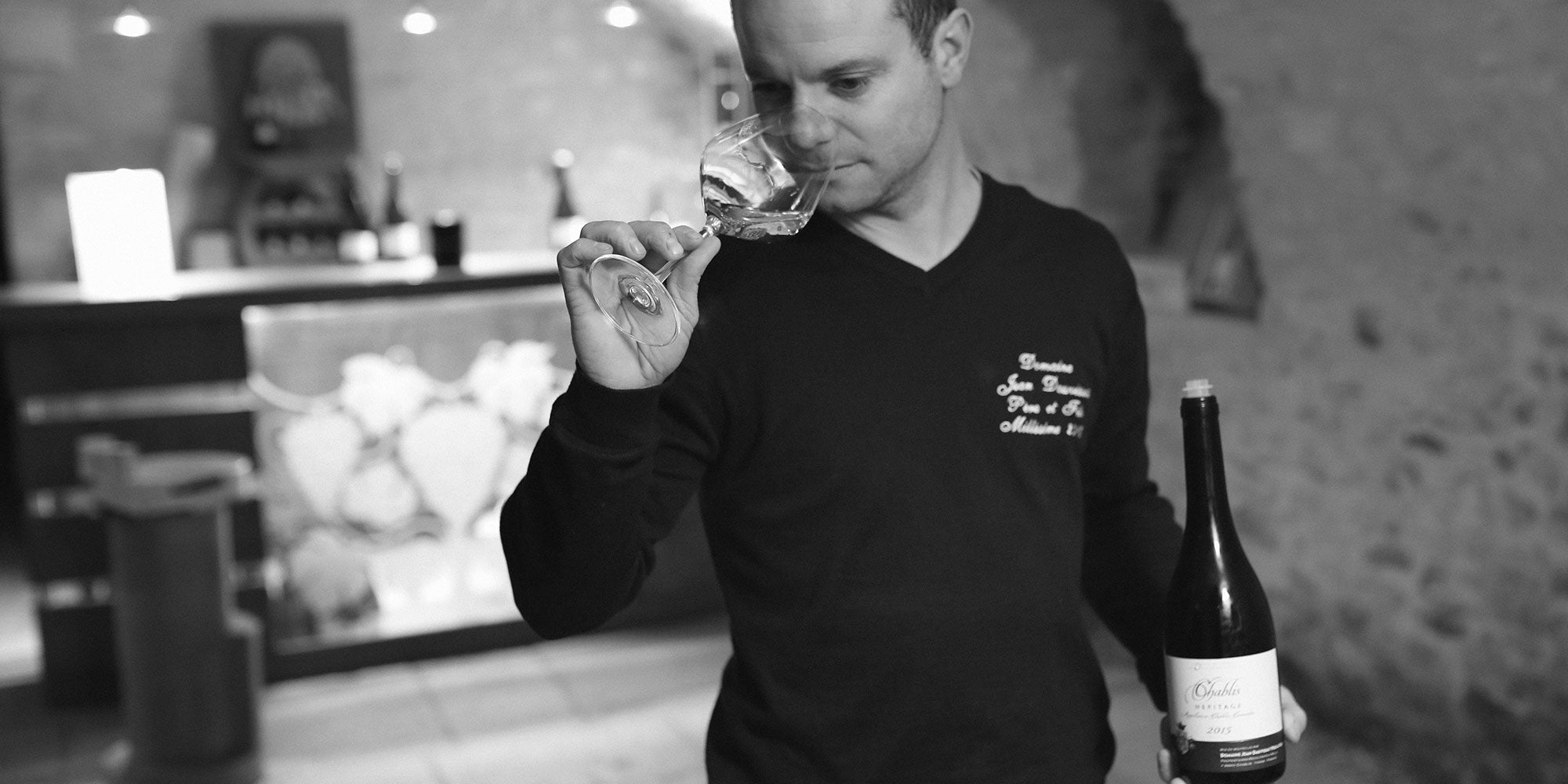Domaine Jean Dauvissat

Let the terroir express itself, and preserve it...
This is the thought that drives all our interventions, from the first cut of the secateurs to the final stage of bottling. Domaine Jean Dauvissat will only intervene in the vines to help the plants produce the best they can. It's with this spirit that they aim for reasonable yields, using targeted pruning, a closely controlled debudding and an organical fertilisation reduced to what is strictly needed.
Læs mere
Organic & Biodynamics
Domanie Jean Dauvissat have grown more and more towards organical viticulture for the simple reason that they can't see themselves working differently. No weed killers or insecticides have been used since 2011. Biodynamics have found their way into their work since 2018, as a way to keep the soils and vines healty. By working the soils, shredding vine shoots, using seeds for a winter vegetation cover and using cow manure compostng, they can preserve the balance and structure of those soils.
Cellar work
In the cellar, they preserve the fruit of the vine, and allow it to express itself. The beleive is, that quality of a wine is made in the vineyards, the cellar is only used as a way to express this quality. Therefore Domaine Jean Dauvissat harvest at optimal maturity (healthy grapes, good sugar concentration and maximum aromas). When the grapes arrive at the winery they are sorted to eliminate anything undesirable (leaves and vegetation, botrytised grapes...).
Next step is that they want our wines to represent what the terroir expresses. This is the reason why they vinify according to geographic situation. Following these lines, they limit any contribution to a strict minimum. This way fermentation is achieved with natural yiest and bacteria already present on the grapes and in our cellar.
To finish they choose to age the wines over a relatively long period (one to two years), in order to allow them to take the time to ripen without rushing nature. The only inputs they use to elaborate the wines is sulphur (between 60 to 90 mg/liter of wine), bentonite (clay used to speed up the proteines in wine) and isinglass (glue from fish that brings finesse and clarity). In order to avoid a tartar deposit they add cellulose gum (natural wood cellulose).
The wines are then lightly filtered with kieselgur (silica rock). Even when already limited in usage and dose, they keep trying to find better alternatives for these products to add to our list.










